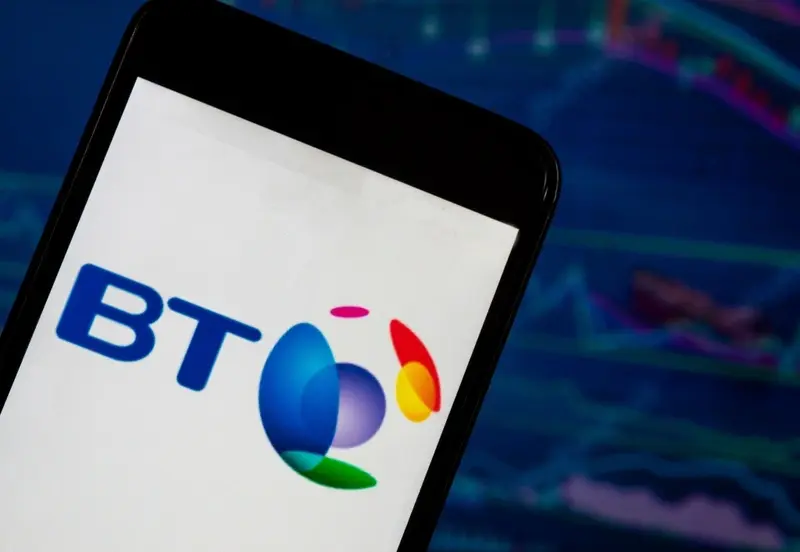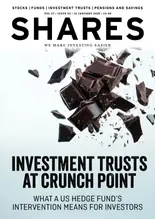
London's blue chip benchmark fell into the red on Thursday, as it gave up the gains made earlier in the session, while Wall Street was in a buoyant mood despite the world's largest economy recording a technical recession.
The FTSE 100 ended down just 2.98 points at 7,345.25 on Thursday. The FTSE 250 index surged 216.10 points, or 1.1%, at 19,855.19. The AIM All-Share index ended up 10.24 points, or 1.1%, at 913.12.
The Cboe UK 100 index lost 0.1% at 733.06. The Cboe 250 added 1.0% at 17,258.58. The Cboe Small Companies rose 0.6% at 13,745.74.
In Paris, the CAC 40 stock index surged 1.3%, while in Frankfurt, the DAX 40 ended 0.8% higher.
The US economy contracted for two straight quarters, figures from the Department of Commerce showed on Thursday, putting the country into a technical recession.
The US economy declined 0.9% in the second quarter, following a 1.6% drop in the first quarter. The latest reading widely missed the market forecast, cited by FXStreet, for growth of 0.5%.
Two consecutive quarters of falling gross domestic product meets a long-held basic view of a recession. However, the US National Bureau of Economic Research is the official arbiter of recessions and uses multiple factors in making this determination.
The figures were reported after the Federal Reserve on Wednesday raised interest rates by 75 basis points for the second time in a row.
While Chair Jerome Powell said the Fed would not hesitate to implement a stronger rise if needed, he also hinted that the level of rate hikes could slow.
The pound was quoted at $1.2129 late Thursday, up from $1.2045 at the London equities close Wednesday. The euro was priced at $1.0163, up from $1.0133. Against the yen, the dollar was trading at JP¥134.45, down sharply from JP¥137.17.
Two data releases on Thursday served to highlight the quandary the European Central Bank finds itself in.
In Germany, inflation slowed slightly in July but was kept high by energy prices, which have soared since the Russian invasion of Ukraine.
Consumer prices rose by 7.5% year-on-year in July, according to the federal statistics agency Destatis, fractionally slower than the 7.6% inflation rate recorded in June.
However, harmonised inflation actually picked up. The harmonised figure is used for EU-wide comparison. On a harmonised basis, consumer prices rose by 8.5% in July from a year before, picking up from 8.2% in June.
The figures followed a survey which showed eurozone consumer confidence tumbled in July.
Euro area consumer confidence weakened to minus 27 points, from minus 23.8 points in June. The figure is below the long-running average of minus 11 points.
Gold got a boost from the weaker dollar. The precious metal rose to $1,755.39 an ounce at the time of the London equities close on Thursday, from $1,718.59 on Wednesday.
Gold miner Fresnillo added 6.7%, among the best large-cap performers. Hochschild Mining rose 8.0%.
On the corporate earnings front, hygiene and pest control firm Rentokil surged 4.5%.
In the six months to June 30, pretax profit climbed 7.8% to £161.9 million, while revenue increased 8.1% year-on-year to £1.57 billion.
Smith & Nephew disappointed, however.
The medical devices maker tumbled 11% as it lowered annual guidance.
For the six months to June 30, revenue was flat at $2.60 billion from the same time last year and pretax profit fell to $204 million from $223 million.
Looking ahead, its trading profit margin for 2022 is now expected to be around 17.5%, down from 18.5% previously guided. Its trading profit margin in 2021 was 18.0%.
BT fell 7.7% as the threat of industrial action hangs over the telecommunications company, though it reported a first-quarter revenue climb.
Revenue for the three months to June 30 inched up 1% to £5.13 billion. This was ‘due to improved pricing and trading in Consumer and Openreach,’ BT said, offset to some extent by ‘challenging market conditions’ hitting large corporate customers in Enterprise and Global.
Meanwhile, the former state monopoly said it has plans to place to minimise disruption when members of the Communication Workers Union strike on Friday and Monday.
BT and Openreach workers are to stage two 24-hour strikes in a dispute over pay. It will be the first strike action at BT since 1987 and the first national call centre workers' strike, said the union earlier this month, adding that 40,000 workers were involved in the dispute.
Barclays posted a fall in first-half profit. Shares in the lender fell 4.8%.
For the six months to June 30, total income was £13.2 billion, up 17% from £11.3 billion last year, but pretax profit was £3.73 billion, down 24% from £4.90 billion.
Barclays took litigation & conduct charges of £1.9 billion for the first half of the year, including a previously disclosed £1.3 billion cost related to the ‘over-issuance of securities’ in the US.
Elsewhere in London, CMC Markets plunged 20%. The contract-for-difference provider warned operating costs were set to be higher than initially expected.
The London-based firm now expects operating costs to be 5% above guidance provided at the 2022 results last month.
In New York, the Dow Jones Industrial Average was 0.5% higher at the time of the closing bell in London. The S&P 500 was up 0.6% and the Nasdaq Composite was 0.4% higher.
Meta Platforms late Wednesday cautioned on weak ‘advertising demand’ driven by economic uncertainty, as its second quarter revenue and profit fell short of market expectations.
Meta shares are down nearly 60% in the past 12 months. It has lost its status as a trillion-dollar company, with its market capitalisation now sitting just above $430 billion.
Continued trillion-dollar club members Apple and Amazon report after the close bell in New York on Thursday.
Brent oil was quoted at $107.47 a barrel late Thursday, up from $106.68 late Wednesday.
Friday's economic calendar has EU GDP and CPI data at 1000 BST.
The local corporate calendar has half-year results from pharmaceutical firm AstraZeneca, British Airways owner International Consolidated Airlines Group and lender NatWest.
Copyright 2022 Alliance News Limited. All Rights Reserved.




